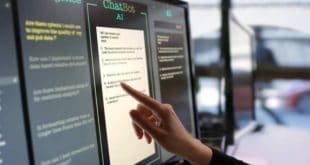If you are currently using Windows 10 on your PC, the chances are that you aren’t worried about your device’s security. Although quite understandable, you need to realize that cyber threats are incredibly rough and can infect or corrupt your device before you even finish closing an application.
Even with a leading anti-virus, disk encryption, and firewall, it is sometimes not enough. Hackers across the internet are looking for that one loophole to jump your guns and hack into your system.
In 2021, here are some of the best tips that you can follow to secure your PC performance and keep your data concealed.
1. Focus on Regular Updates
There is no alternative to updating your Windows operating system every time there is a new update sitting right in your notifications bar. Many users tend to postpone updating their Windows, and this is where you go wrong. Every update comes with an additional security update that keeps your device secure without you having to go the extra mile for it.
Most of the time, the bug fixes and the lacking security patches in the device are what lead the hackers to your system, giving them free access to hacking into it. With the fantastic infrastructure that Windows 10 offers, you wouldn’t have to worry about downloading your updates manually. All you need is a viable internet connection, and the updates will be downloaded automatically to your device.
2. Install a Firewall
If you aren’t tech-savvy, the chances are that you wouldn’t know about this. However, a Windows Defender Firewall is ideal for keeping track of the traffic coming in. If the firewall detects anything amiss or suspicious, they will immediately block out that traffic to ensure that your device is safe and secure.
The Windows Defender Firewall is not a bad option, but it doesn’t do the job optimally. We’d recommend you instead look into the third-party firewall applications and install them on your device.
3. Double-check Your Downloads
If you are randomly downloading software and applications or other items off the internet without cross-checking the source, you are putting your system at risk. Most of the malware infections and cyber threats are relayed via these unwarranted downloads from unknown sources.
Even in some of the legitimate downloads, the hackers end up securing their malware, trying to break into the user’s system. The best way to avoid doing that is by being vigilant and downloading from official or reliable sources. If possible, cross-check the download source and then ensure that it’s a safe platform to download from. If there are any suspicious activities, retract from the website immediately.
4. Install an Ad-Blocker
Ads are another way hackers plant malicious viruses on the internet. You wouldn’t even realize it happening, but a sudden pop-up ad out of nowhere can infect your system in multiple irreparable ways. Ad blockers serve a good purpose in such cases and help block out the unwanted ads completely from your Windows system.
This way, you wouldn’t have any risks of accidentally clicking on a pop-up ad and unknowingly download malware into your system. Ad-blockers from third-party software like Norton and Avira work pretty well.
5. Switch to a VPN
Not much for your home network, but if you are using public wifi for your work, it is always advisable that you switch to a paid VPN service to conceal your IP address and other essential credentials. They secure your IP address and prevent your information from going out in public, which is often a prevalent issue with these devices.
Not just the IP address, VPNs also secure your browsing data, keeping the more prominent corporations from looking into it and selling it to corporates. However, we’d recommend that you use a paid VPN service and not a random free version of the software for optimal and effective results.
Conclusion
Cybersecurity is a highly crucial subject. Not only does it help keep your system safe, but it also conceals your essential data and credentials that you otherwise would put to risk. There are many hackers in the market, and the last thing you want is for them to compromise your computer’s health and security. These mentioned points in this article can effectively keep a check on your PC’s performance.
 Gearfuse Technology, Science, Culture & More
Gearfuse Technology, Science, Culture & More


